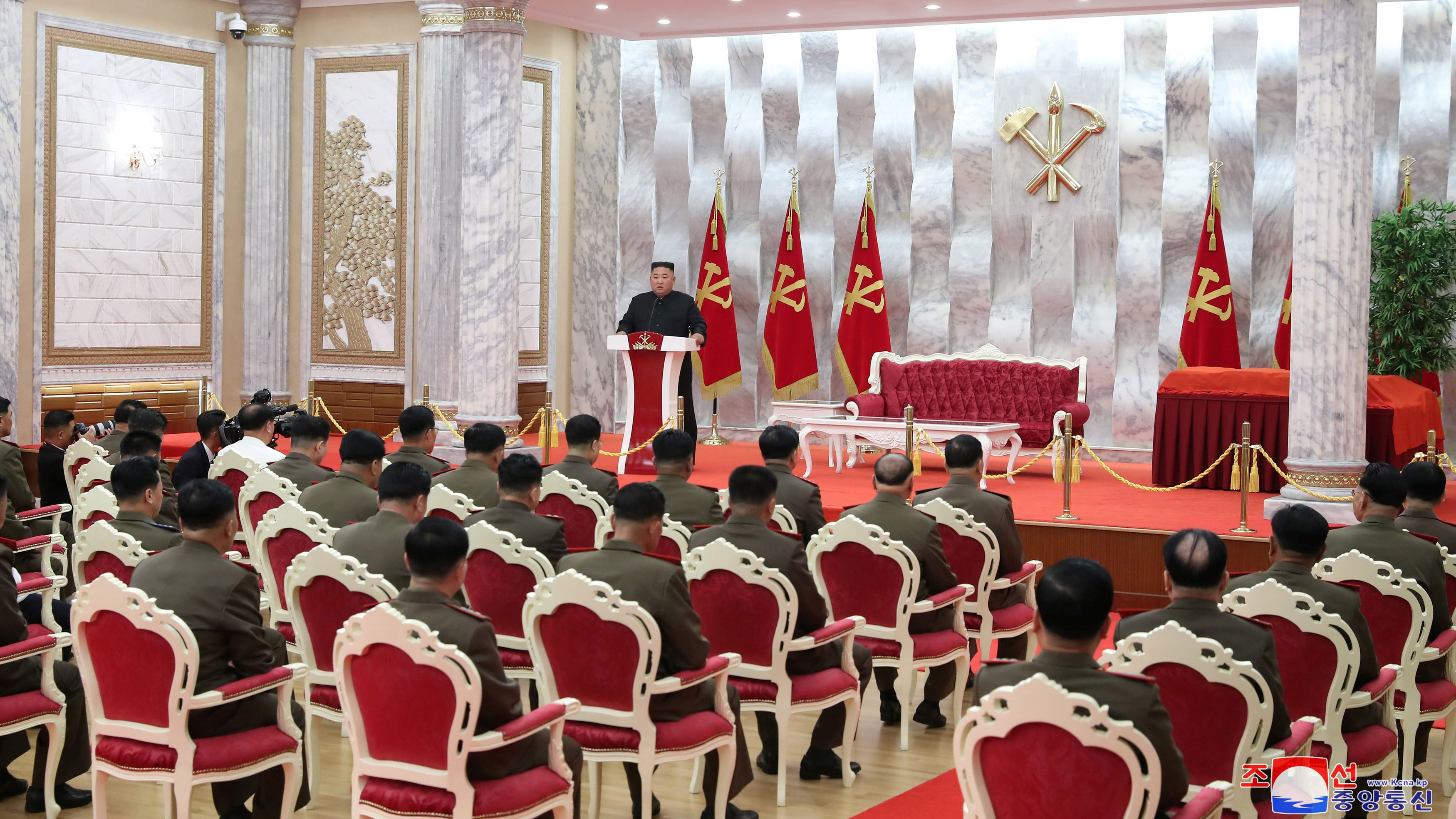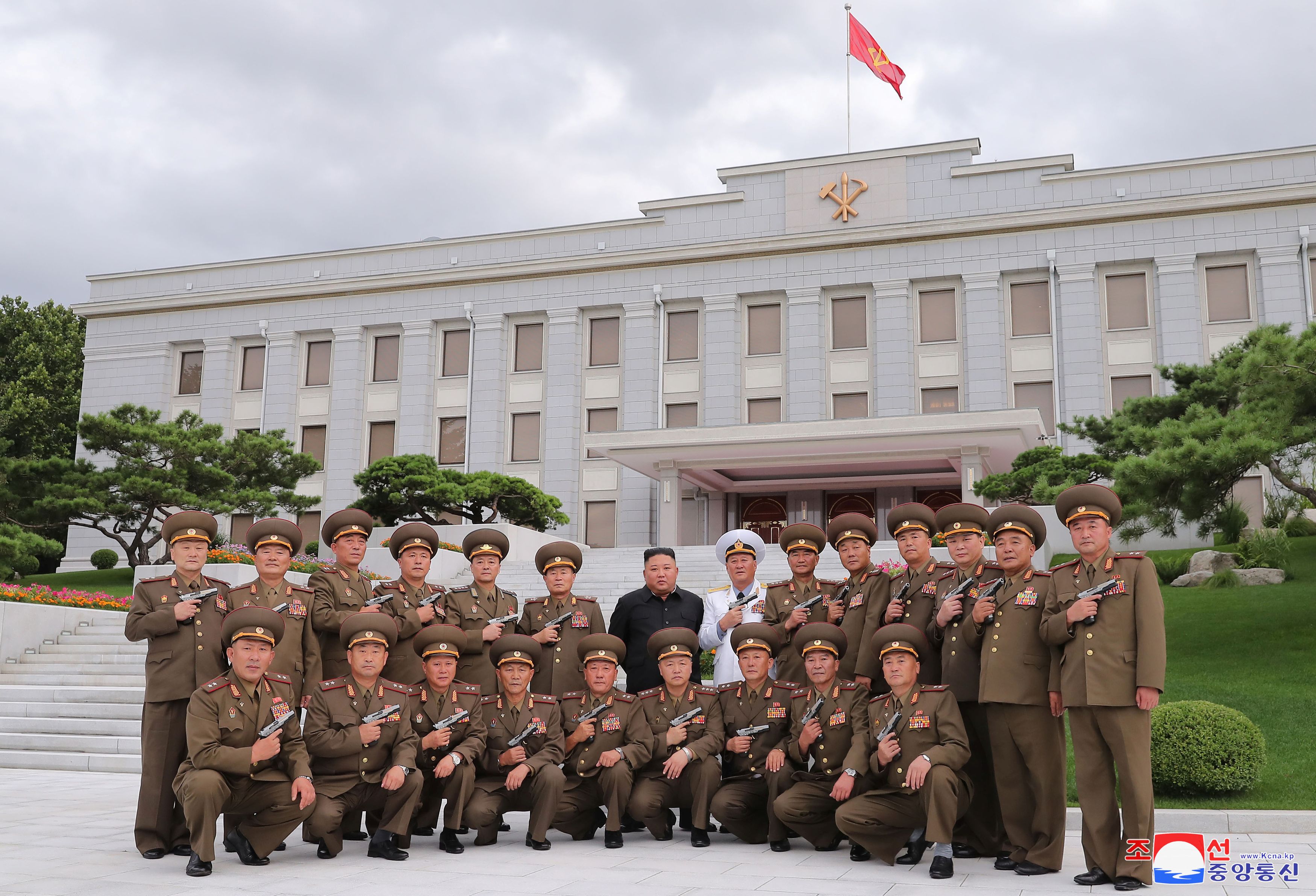
DPRK leader Kim Jong Un speaks on the 67th anniversary of the armistice of the 1950-53 Korean War, in this undated photo released on July 27, 2020 by KCNA in Pyongyang. /Reuters
DPRK leader Kim Jong Un speaks on the 67th anniversary of the armistice of the 1950-53 Korean War, in this undated photo released on July 27, 2020 by KCNA in Pyongyang. /Reuters
Top leader of the Democratic People's Republic of Korea (DPRK) Kim Jong Un marked the 67th anniversary of the signing of the armistice that ended the 1950-53 Korean War by visiting a war cemetery and presenting army officers with pistols, the Korean Central News Agency (KCNA) reported Monday.
Kim paid homage to the soldiers killed in the Korean War and buried at the Fatherland Liberation War Martyrs Cemetery to commemorate the anniversary of the armistice.
"The undying feats of the defenders of the fatherland in the 1950s, who provided the valuable mental heritage of the revolution amid the flames of the hard-fought war, would shine long in history," Kim was quoted as saying.

DPRK leader Kim Jong Un poses for a photograph after conferring "Paektusan" commemorative pistols to leading commanding officers of the armed forces on the 67th anniversary of the armistice of the 1950-53 Korean War, in this undated photo released on July 27, 2020 by KCNA in Pyongyang. /Reuters
DPRK leader Kim Jong Un poses for a photograph after conferring "Paektusan" commemorative pistols to leading commanding officers of the armed forces on the 67th anniversary of the armistice of the 1950-53 Korean War, in this undated photo released on July 27, 2020 by KCNA in Pyongyang. /Reuters
The KCNA said Kim also held a ceremony on Sunday afternoon at the headquarters of the ruling Workers' Party's Central Committee and presented newly developed "Mount Paektu" commemorative pistols to leading commanding officers of the armed forces on the occasion of the anniversary.
Mount Paektu is the highest peak on the Korean Peninsula and is considered the sacred birthplace of the Korean people.
The commanding officers responded by making "solemn pledges, looking up to the Party flag, to hold close to their hearts the commemorative pistols conferred upon them by the Supreme Leader until their death," the KCNA said.
Over 2.5 million people, according to some estimates, were killed during the three-year war between the DPRK and the Republic of Korea (ROK), which also involved China, the U.S. and UN troops.
Following a protracted stalemate, a ceasefire was agreed on July 27, 1953. Without a formal peace treaty however, the DPRK and ROK remain technically at war.
Even today, the two are separated by the Demilitarized Zone (DMZ) – a four-kilometer-wide buffer zone, often referred to as the world's most heavily militarized border, with troops standing guard on each side.